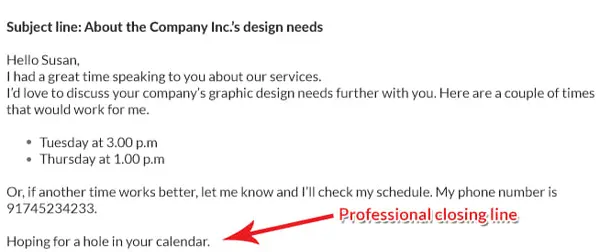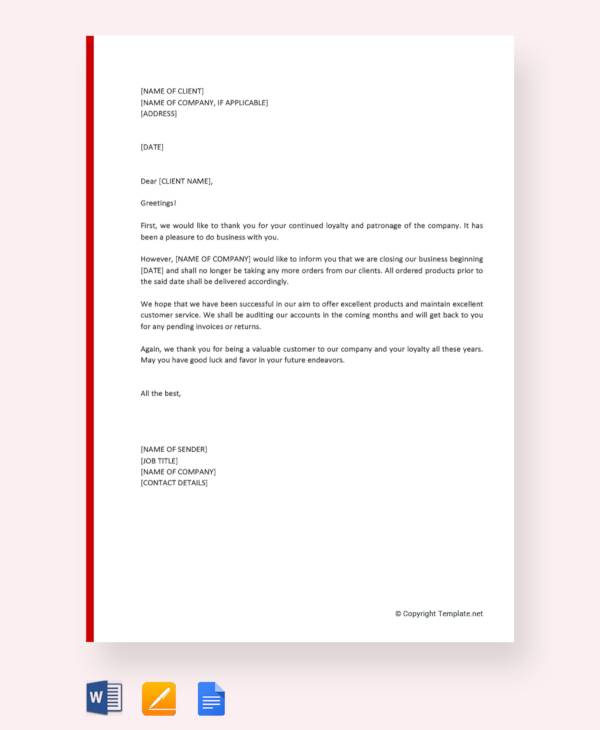
These are straight out formal letter closings and should be used when you do not have any sort of familiarity with the recipient whatsoever.

So, depending on the content, you might want to consider building them. These sorts of endings, even though they are quite personal, to an extent, can link the closure of the letter with the rest of the content. An early reply would be appreciated / I look forward to hearing from you at your earliest convenience.They are quite formal but are actually considered appropriate once you have gained enough familiarity and knowledge about the person.
#CLOSING FORMAL EMAIL PROFESSIONAL#
Finally, they used an attractive and professional email signature template, followed by the email. Along similar lines, any of these intimate sign-offs are unacceptable. They use a formal business closing phrase: Sincerely. It might go without saying, but ending a professional message with 'Love' will make your recipient uncomfortable. Yours truly, Cordially, Best regards: These kind of closings are the most personal touch you can give your formal letter. Here are the worst ways to close an email.Other Options for a Complimentary Closing:.This is more of an advice than a general rule, but you should always use a capital letter to start off your closing sentence.Things like “Later” and “Cheers” should not really be implemented in your formal letters, since they give off a friendly vibe, which is something you most definitely want to avoid. Since this is a formal letter, you should really try to avoid closings that are overly friendly.Alongside the two mentioned above, things like “Sincerely.”, “With sincere appreciation.”, “Cordially.” and “With Gratitude,…”, among many others, are very decent options for you to close out your formal letter with. But a question that is most likely to arise, is which ones should be used to close off formal letters. So for example, phrases like “Yours truly.”, “Respectfully.” and so on so forth, are commonly used to close off letters of both personal and formal origin. They show your appreciation towards the person your letter is addressed to. Complimentary closes are the phrases you use to close out your letter, they are used right before your signature.What are complimentary closes and how should they be used:.

So, right after your complimentary close, you should follow it up with a comma, write down your signature if the letter is a hard copy, and then, right after a coma, you follow it up with any additional personal information you might want to include.

First of all, it is distinctly separated by commas.


 0 kommentar(er)
0 kommentar(er)
